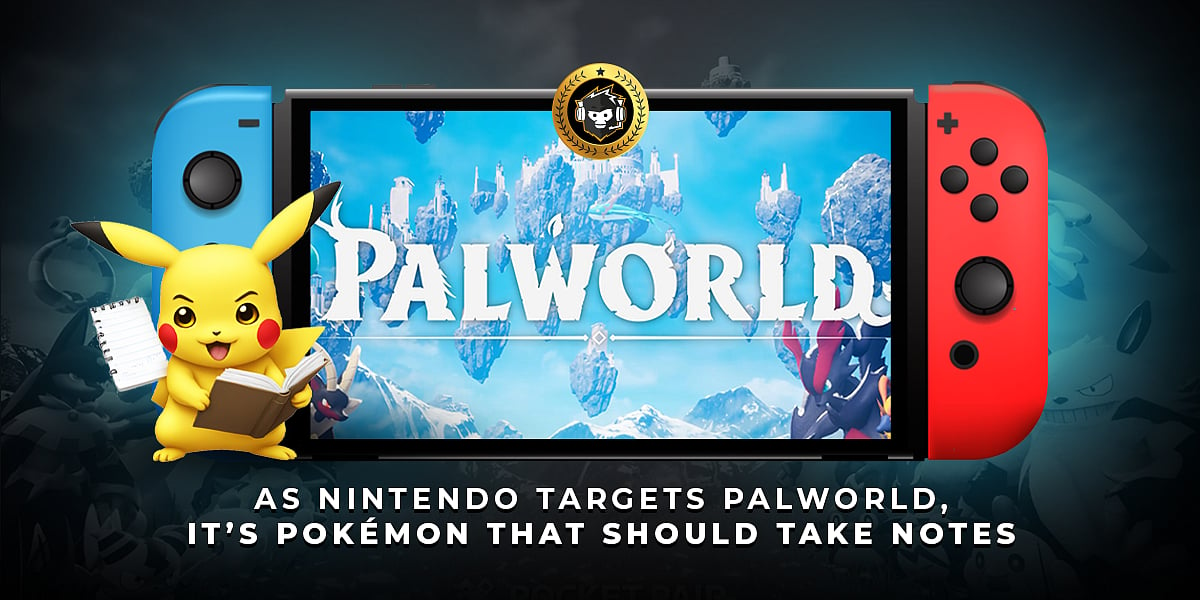As Nintendo Targets Palworld, It’s Pokémon That Should Take Notes
Could Pokémon take a page from the upstart’s playbook?

Cover-Credits:
AFK Gaming
Nintendo filed a lawsuit against game developer Pocketpair, alleging that the studio’s recently released title, Palworld, infringes on "multiple patent rights," according to an official corporate news release dated September 18.
The legal battle centers around Palworld’s core gameplay mechanics, where players capture creatures known as “Pals” by weakening them and then trapping them in “Pal Spheres”—a system that bears a striking resemblance to Nintendo’s iconic Poké Balls used in its long-standing Pokémon franchise. Fans have also pointed out numerous similarities in the design of Palworld’s characters, noting how many of the Pals appear to be inspired by or closely mimic the aesthetic and abilities of Pokémon species. Some players have even gone as far as creating mods to insert actual Pokémon into Palworld, making the connection between the two games even more explicit and likely provoking additional scrutiny from Nintendo’s legal team.
A few in the community, however, have suggested that Nintendo’s legal maneuvering could reflect deeper concerns about its own position in the market. While the Pokémon series has been a financial juggernaut, some recent releases have been met with mixed reviews, leading to questions about the franchise’s direction. Meanwhile, Palworld, which blends elements of monster-collecting with open-world survival gameplay, has been lauded for introducing fresh ideas to the genre—a feat that has even led to Krafton partnering with Pocketpair to develop a mobile version of the game.
The lawsuit also comes at a time when the Pokémon franchise’s reputation has been on shaky ground. Once celebrated for its pioneering gameplay and imaginative world-building, recent entries in the series have faced growing criticism from fans and reviewers alike. Complaints have ranged from recycled content and lackluster graphics to performance issues and a perceived decline in creativity. While each new Pokémon release still manages to sell millions of copies, some critics argue that the franchise’s quality has been in free fall over the past few years, tarnishing the once-sterling reputation of a brand that helped define a generation of gaming.
